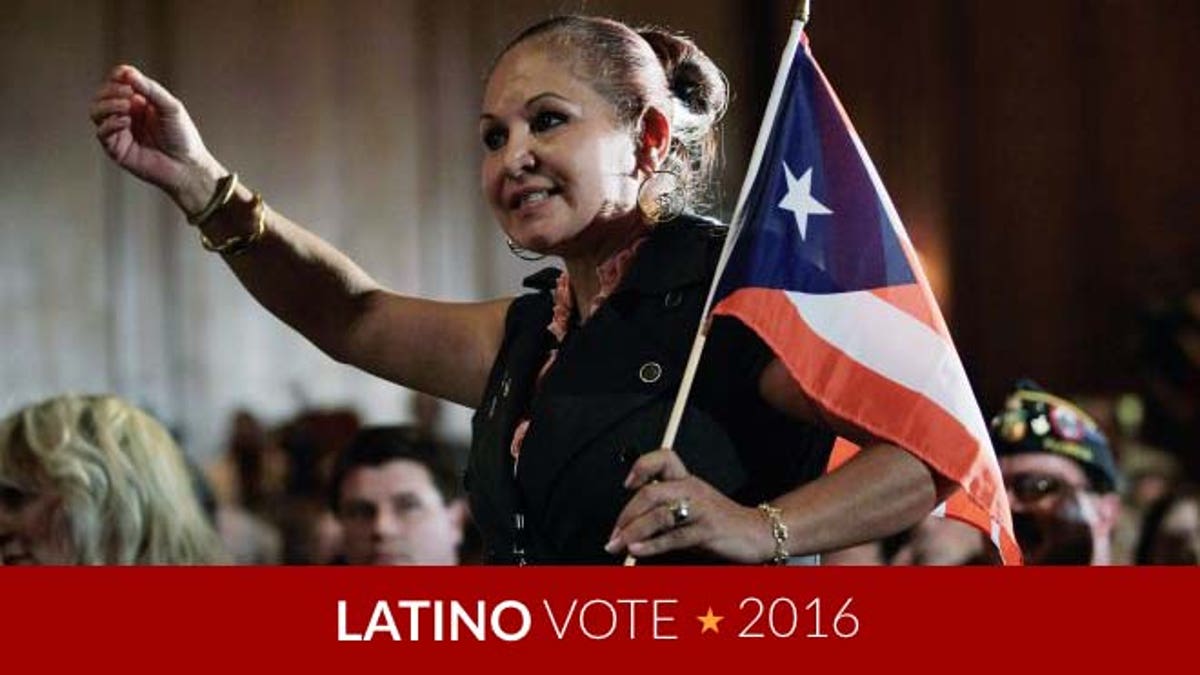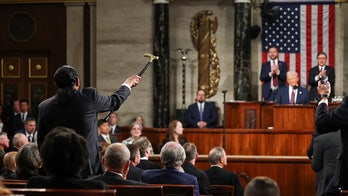
Orlando, Fla. – The Puerto Rican Bar Association in Orlando recently held “Political Salsa,” an event aimed at informing the area’s booming Latino population about the electoral process, and introducing candidates of both parties who were in attendance and are running for local office.
Republicans are going to community events in Orlando, including fairs, and visiting churches to explain the party’s views on salient issues, and encourage people to vote. The Democratic Hispanic Caucus of Florida has held get-out-the-vote caravans – complete with music, and featuring dozens of cars and motorcycles – fashioned after similar ones in Puerto Rico. The group plans more in the coming year.
And several presidential candidates from both parties have visited Puerto Rico in recent months, sometimes stopping in Florida first to discuss their trip and agenda with Puerto Ricans who live in the Sunshine State.
It is all part of the political romancing of the state’s fast-growing Puerto Rican population, which has doubled to roughly 1 million from less than 500,000 since 2000, and more than quadrupled since 1990. Finding Miami “too saturated,” as many put it, they have settled mostly in Central Florida, lured by its affordability and small-town feel. About 1,000 arrive in this part of Florida each week.
The phenomenal boom of the Puerto Rican community – as well as some other Latino groups – in Central Florida has made the area a critical prize in the important swing state, and made Latinos a voting bloc that is up for grabs like never before.
“The Puerto Rican vote is going to be absolutely critical,” said Helen Aguirre Ferre, a South Florida-based consultant for the Jeb Bush campaign. “A candidate has to be mindful that winning the Puerto Rican vote is going to be very important to winning the state.”
Many say that Puerto Rican voters played a key role in President Barack Obama’s winning Florida in both 2008 and 2012. After decades of Latinos in the state leaning Republicans, in large part because of Cuban exiles who preferred the GOP’s assertive stance toward Cuba, many Latinos are now registering as Democrat and, even more, Independent.
But Puerto Ricans, long seen as an overwhelmingly Democratic voting bloc, are up for grabs more than ever as its diversity in Florida has grown. Though Miami – and being photographed sipping Cuban cafecito in Little Havana – is still important for campaigning candidates, Central Florida is the new darling of Latino outreach efforts.
While they overwhelmingly backed Obama when he ran for re-election in 2012, more than half of Latinos in Florida voted for former Gov. Jeb Bush, who won some Central Florida counties with large Puerto Rican communities.
Former President George W. Bush lost Orange County by a small margin, and won Osceola County, increasingly a Puerto Rican enclave, in 2004.
“Florida is extremely important,” said Jose Parra, a Democratic strategist who worked on Sen. Harry Reid’s campaign when the Nevada Democrat last ran. “It’s the perennial swing state.”
“The challenge is that the Hispanic electorate is more and more diverse, not only in national origin but in the issue that motivates them.”
Many Puerto Ricans assess a candidate by his or her position on statehood for the island, say some community leaders. These days, many Puerto Ricans want to know a candidate’s view on what the U.S. government should do to help Puerto Rico, which is struggling through a $72 billion debt and high unemployment – key reasons many have left and come to Florida.
The Puerto Rican community itself defies simplification.
Many of the more recent arrivals are professionals, often with more conservative views.
Although they come from a place where politics is practically a national sport, with a rate as high as 80 percent often turning out to vote, elections operate very differently there.
“The Puerto Rican community migrating to Florida, they’re used to voting only once every four years back home,” said Vivian Rodriguez, president of the Democratic Hispanic Caucus of Florida. “Here, you vote all the time [in local and state elections].”
Echoing other Puerto Rican leaders, Rodriguez said newer arrivals often feel overwhelmed by the political dynamics of the U.S. mainland. Here, they learn about counties, which are non-existent in Puerto Rico, and many feel confused by what distinguishes Republicans from Democrats.
“There’s a difference in the voting pattern,” Rodriguez said. “That’s where we come in. We have to bring awareness of the political landscape here.”
Some Puerto Ricans say that even though those who arrive, because of their U.S. citizenship, have the right to vote from the get-go, many get too bogged down trying to navigate their new surroundings, and regroup financially if they’ve suffered losses on the island, to register and cast their ballot.
“It’s not that they don’t want to get politically engaged,” Rodriguez said. “Our community works hard, they don’t have time. So we have to go to them.”
Orlando City Commissioner Tony Ortiz, a former Marine and Persian Gulf War veteran who left Puerto Rico for the mainland as a teenager, last year launched a so-called “government academy” aimed mostly at new arrivals from Puerto Rico and Latino immigrants. Those who take part in the academy take a two-hour class in U.S. civics once a week for seven weeks, and end the course with a graduation ceremony, where they receive a certificate.
“We teach them how a bill gets to become law, how many people are in Congress, in the Senate,” said Ortiz, who describes himself as a “moderate conservative.” “We explain the functions of the president and the vice president, the relationship between the federal and municipal governments.”
“It’s pretty motivating for our community,” said Ortiz of finally understanding the inner workings of government and elections. “I remember how confused I was at the beginning when I came from Puerto Rico.”
It’s only in recent years, community leaders and national political operatives say, that outreach to Puerto Ricans has become more nuanced, though there remains a lot of room for improvement.
“They have to do more direct outreach, more going out to the community, explaining the parties, explaining the candidate, many Puerto Ricans who just got here don’t have a clue, so they just stay out of the process,” said Lara Rodriguez, a lawyer who settled in Orlando from Puerto Rico a few years ago and had worked on Obama’s campaign. “Puerto Ricans are loyal. The first party to effectively engage them will have their support, their loyalty.”
A crop of Latino liberal and conservative talk show hosts have become a pivotal part of the effort to weave Puerto Ricans, as well as other Latino immigrants who have settled in the area, into the political world of Florida and the U.S. mainland.
Anthony Suarez, a Republican who is president of the Puerto Rican Bar Association and a former state legislator, hosts a radio show that focuses to a great extent on politics. Suarez is one of the many Puerto Ricans in Central Florida who is a transplant from New York (many also have come from Illinois and Pennsylvania, among other places). Like many others, he went from being a “Nuyorican” to a “Mickey Rican,” what many Puerto Ricans in Orlando call themselves.
A one-time Democrat, Suarez said he became disillusioned when he was shunned for supporting some of then-Gov. Jeb Bush’s policies, and decided to switch to the GOP.
But Suarez doesn’t hesitate to point out shortcomings in his own party – weaknesses he wants them to address because, he says, they alienate Latinos and could end up destroying the GOP’s future.
He says Republicans could gain ground with Puerto Rican voters if they stop speaking against such things as statehood and allowing bankruptcy for the island.
“If Puerto Rico becomes a state, then [several] issues will be resolved,” Suarez said. “If Republicans say ‘Drop dead’ to Puerto Ricans [regarding debt relief] in order to protect investors, they’ll lose a million votes.”
“A smart candidate would say to Puerto Ricans: ‘Vote for statehood, and I’ll stand with you.’”
Aguirre Ferre of the Bush campaign believes the field is wide open for any party to make its mark with today’s Florida Latinos.
“A significant number of Hispanic voters are open,” Aguirre Ferre said. “We’re not leaving any stone unturned. Even a 2 percent difference in one district can make the difference in a tight election.”











































